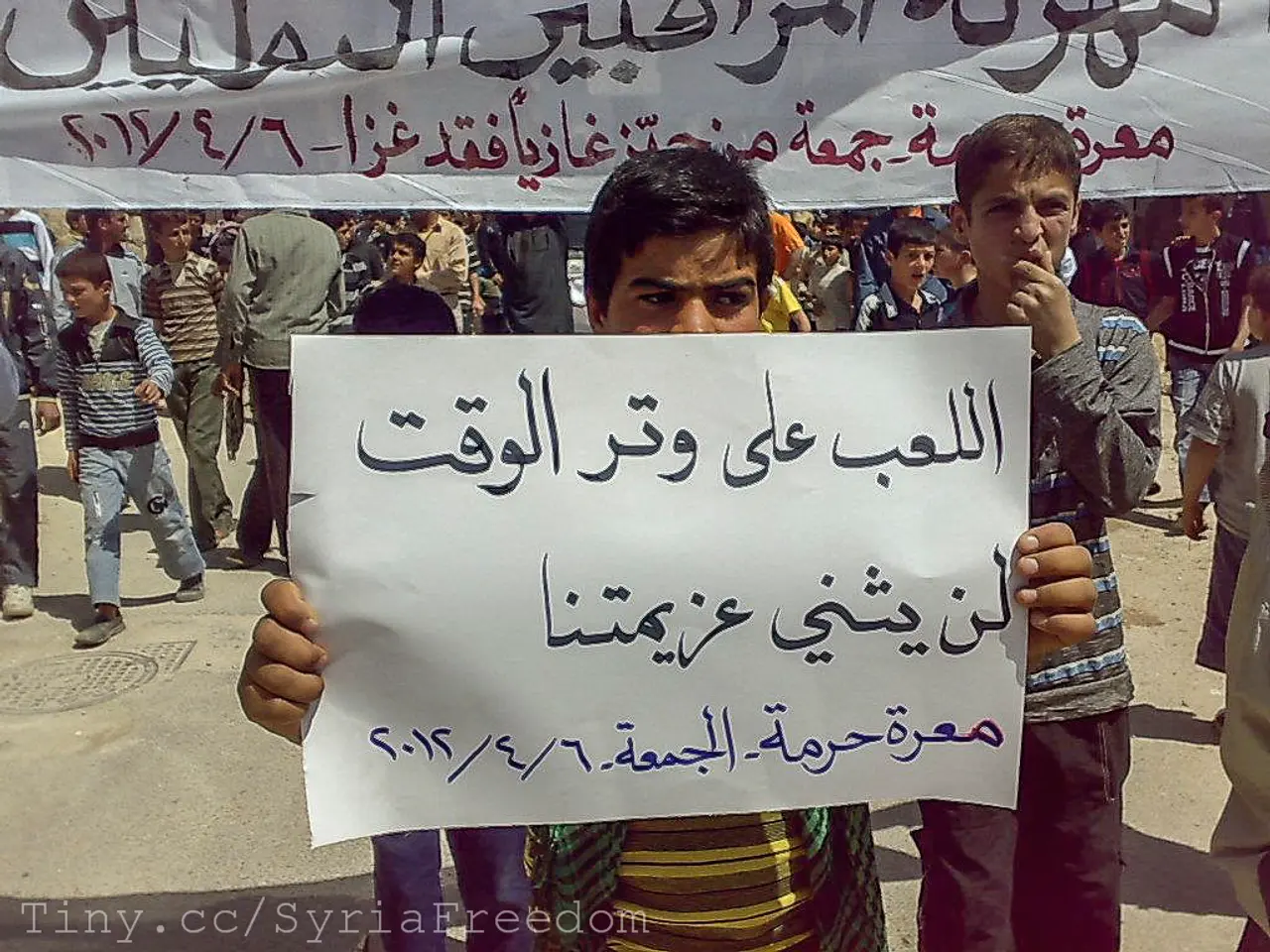Critics harshly condemn decreases in humanitarian relief funds by MEPs
A growing chorus of criticism from members of various political parties in the Bundestag, Germany's federal parliament, is focusing on the proposed cuts to the humanitarian aid budget. The concerns revolve around the potential impact on international responsibility, global development, and the effectiveness of humanitarian assistance.
Key Concerns and Arguments
Humanitarian Aid Budget Cuts
The German government has proposed significant reductions to the budget for humanitarian aid, including a 50% cut in the 2025 draft budget. This has raised concerns about Germany's ability to fulfill its international obligations and contribute to global humanitarian efforts.
Impact on ODA/GNI Ratio
The cuts are projected to reduce Germany's Official Development Assistance (ODA) as a percentage of its Gross National Income (GNI) from 0.56% in 2025 to 0.52% in 2026 and further to 0.43% by 2029. This decline is seen as a failure to meet international development goals and could undermine Germany's reputation as a responsible global actor.
Inefficient Aid Distribution Mechanisms
Germany has criticized non-governmental organizations like the Gaza Humanitarian Foundation for ineffective aid distribution, emphasizing the need for humanitarian aid to be delivered in accordance with international principles. This highlights concerns about the effectiveness and accountability of aid programs.
Policy Compromises and Efficiency
The cuts are part of a broader political compromise, with Minister Lars Klingbeil stating that the reductions are aimed at improving spending efficiency. However, this approach may be seen as risky, as it could lead to reduced aid effectiveness and less support for critical humanitarian crises.
International Responsibility and Global Development
The proposed cuts are concerning because they could weaken Germany's role in international humanitarian efforts. Reducing aid could slow global development and undermine efforts to address pressing humanitarian crises, such as those in Afghanistan and Gaza.
Ongoing Debates
Parliamentary Discussions
The 2026 budget draft is set for parliamentary discussions post-summer recess, with final decisions expected in November 2025. This provides an opportunity for further debate and potential adjustments to the proposed cuts.
Civil Society and NGOs
Organizations like Diakonie Katastrophenhilfe have called for restoring humanitarian aid budgets to previous levels, emphasizing the need for increased funding to address growing humanitarian needs.
Ines Schwerdtner, the Left Party's chairperson and budget spokesperson in the Bundestag, has joined the criticism of the planned cuts in the humanitarian aid budget. In a Monday edition of the Rheinische Post newspaper, Schwerdtner asserted that the cuts in development aid fuel poverty, flight, and war, creating a vicious circle. Ralf Stegner, a foreign policy expert from the SPD, has also criticized the proposed cuts, believing they contradict Germany's core values and could harm its international reputation.
Stegner expressed concern that increased military spending and decreased humanitarian aid contradict Germany's values of solidarity and humanity. He warned of potential negative consequences for global development due to the proposed cuts in the humanitarian aid budget. Schwerdtner estimates that billions more will be invested in armament and isolation, rather than in development aid and international cooperation.
The criticism of the cuts in the humanitarian aid budget has been expressed in the Rheinische Post newspaper. This broader criticism is part of a broader criticism coming from members of various parties in the Bundestag, highlighting the widespread concern about the proposed budget changes. The criticism suggests that the proposed cuts in the humanitarian aid budget could harm Germany's international reputation and its role as a responsible global actor.
- The proposed cuts to Germany's humanitarian aid budget have sparked a debate within the Bundestag, with concerns emerging about the country's international responsibility and global development role.
- Some critics argue that the cuts could exacerbate war-and-conflicts, leading to increased migration and crime-and-justice issues, particularly in crisis-stricken regions like Afghanistan and Gaza.
- In the wake of the proposed cuts, valid questions have been raised about the efficiency of casino-and-gambling spending versus humanitarian aid, with some politicians calling for policy-and-legislation reform to prioritize global aid efforts.
- Ongoing parliamentary discussions and civil society advocacy offer opportunities to reconsider these cuts, as organizations like Diakonie Katastrophenhilfe push for restored aid budgets to meet growing humanitarian needs and uphold general-news values of compassion and solidarity.




